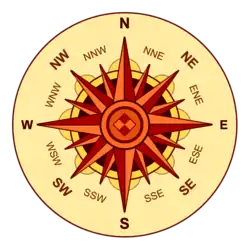—Knowing what to do
Introduction

Moral Reasoning is the thought process we go through to determine what we ought to do. Moral reasoning helps us decide what is right and what is wrong.
No simple rule, list of commandments, formula, or outcome seems to adequately capture the complexities of moral reasoning.[1] Instead, we need to rely on a toolkit that taken together provides guidance in a variety of situations.
This course presents the elements of the moral reasoning toolkit.
Objectives
| Completion status: this resource is considered to be complete. |
| Attribution: User lbeaumont created this resource and is actively using it. Please coordinate future development with this user if possible. |
The objective of this course is to improve your moral reasoning and your moral behavior.
All students are welcome and there are no prerequisites to this course.
The course contains many hyperlinks to further information. Use your judgment and these link following guidelines to decide when to follow a link, and when to skip over it. This course is part of the Applied Wisdom curriculum and of the Moral Reasoning curriculum.
If you wish to contact the instructor, please click here to send me an email or leave a comment or question on the discussion page.
Elements of moral reasoning include the topics addressed in each of the following sections.
Moral Virtue
Moral reasoning begins with the moral virtues.
Moral virtue is excellence in being for the good.
Assignment
- Complete the Wikiversity course on Moral Virtue.
- Become excellent in being for the good.
Intellectual Honesty
Intellectual honesty combines communicating in good faith with a primary motivation toward seeking true beliefs.
Assignment
- Complete the Wikiversity course on Intellectual honesty.
- Become Intellectually honest.
- Insist on Intellectual honesty from others.
Fairness
Fairness is freedom from bias, dishonesty, or injustice.
We naturally appeal to fairness to avoid or resolve conflict. Unfortunately, when conflict emerges it is often difficult for adversaries to agree on what is actually fair.
Assignment
- Complete the Wikiversity course on Understanding Fairness.
- Seek fairness.
- Treat people fairly.
Global Perspective
When we adopt a Global perspective we consider all that matters.
Assignment
- Complete the Wikiversity course on Global Perspective.
- Adopt a global perspective when seeking, identifying, defining, and solving problems.
Flourishing

Promote human flourishing—where people often have positive experiences.
We flourish when we focus on what matters.
Assignment
- Read the on-line book Flourishing: What is flourishing and how can it happen?
- Complete the Wikiversity course on What Matters.
- Focus on What Matters.
- Don’t be distracted by things that don’t matter.
Live the Golden Rule
We live the golden rule when we treat others only as we consent to being treated in the same situation.
We can test our moral reasoning by changing places with the people most affected by our moral decisions and evaluating their experience.
Assignment
- Complete the Wikiversity course on Living the Golden Rule.
- Treat others only as you consent to being treated in the same situation.
- Live the Golden Rule.
Respect Human Dignity
Moral reasoning requires us to always respect human dignity—the quality of worth and honor intrinsic to every person.
Assignment
- Complete the Wikiversity course on Dignity.
- Treat every person with dignity.
- Insist on being treated with dignity
Protect Human Rights
Moral reasoning requires us to protect human rights, worldwide.
Human rights provide essential protections for every person.
Assignment
- Complete the Wikiversity course on Assessing Human Rights.
- Work to protect human rights, worldwide.
Face Facts
Reality is our common ground. Face facts, especially when they are difficult.
Assignment
- Complete the Wikiversity course on Facing Facts.
- Embrace reality. Draw on reality when seeking common ground.
- Face facts, especially when they are difficult.
- Do not argue matters of fact, research them using reliable sources and reliable methods.
True Beliefs
Untrue beliefs are more likely to be harmful than true beliefs.[2] Therefore, we have a moral obligation to choose true beliefs.
Assignment
- Complete the Wikiversity course on Seeking True Beliefs.
- Choose true beliefs.
- Challenge untrue beliefs.
- Advance no falsehoods.
Transcend Conflict
Whenever you encounter conflict, work to transcend it.
Assignment
- Complete the Wikiversity course on Transcending Conflict.
- When you encounter conflict, work to transcend it.
Find Courage
Jane Addams tells us that "Action indeed is the sole medium of expression for ethics."
Find the courage to act according to your well-chosen values.
Assignment
- Complete the Wikiversity course on Finding Courage.
- Find your courage.
- Use your courage to act on your well-chosen values.
Resolve Anger
Resolve anger without resorting to violence.
Assignment
- Complete the Wikiversity course on Resolving Anger.
- Resolve anger without resorting to violence.
Scope
An important moral question is who matters? Possible answers include: me, my friends and family, my community, my tribe, my nation, all the world’s people, sentient beings, all beings, all living species, people yet to be born, all beings for all time.
Albert Einstein said: "A human being is a part of the whole, called by us 'Universe,' a part limited in time and space. He experiences himself, his thoughts and feelings as something separated from the rest — a kind of optical delusion of his consciousness. This delusion is a kind of prison for us, restricting us to our personal desires and to affection for a few persons nearest to us. Our task must be to free ourselves from this prison by widening our circle of compassion to embrace all living creatures and the whole nature in its beauty. Nobody is able to achieve this completely, but the striving for such achievement is in itself a part of the liberation and a foundation for inner security."
The scope of moral reasoning extends to include all sentient beings, worldwide, now and into the future.
Applying Moral Reasoning
Moral reasoning is useful when it helps us analyze and decide moral issues fairly and determine what we ought to do.
Assignment
- Choose a moral issue to analyze from this list of Moral Issues, or from another source.
- Apply your moral reasoning to decide the moral issue.
- What did you decide you ought to do?
- Continue to apply your moral reasoning to make careful decisions throughout your life.
- Continue to refine your moral reasoning.
Further Reading
Students interested in learning more about moral reasoning may be interested in the following materials:
- Gensler, Harry J. (March 21, 2013). Ethics and the Golden Rule. Routledge. p. 256. ISBN 978-0415806879.
- Greene, Joshua (December 30, 2014). Moral Tribes: Emotion, Reason, and the Gap Between Us and Them. Penguin Books. p. 432. ISBN 978-0143126058.
- Hicks, Donna (January 29, 2013). Dignity: Its Essential Role in Resolving Conflict. Yale University Press. p. 240. ISBN 978-0300188059.
- Rosling, Hans (April 3, 2018). Factfulness: Ten Reasons We're Wrong About the World--and Why Things Are Better Than You Think. Flatiron Books. p. 352. ISBN 978-1250107817.
- Frankfurt, Harry G. (October 31, 2006). On Truth. Knopf. p. 112. ISBN 978-0307264220.
- Kelleher, Ann; Klein, Laura (2005). Global Perspectives: A Handbook for Understanding Global Issues. Prentice Hall. p. 240. ISBN 978-0131892606.
- Flourishing: What is flourishing and how can it happen?
- Seligman, Martin E. P. (February 7, 2012). Flourish: A Visionary New Understanding of Happiness and Well-being. Atria Books. p. 368. ISBN 978-1439190760.
- Reich, Robert B. (February 20, 2018). The Common Good. Knopf. p. 208. ISBN 978-0525520498.
- Kidder, Rushworth M. (April 1, 1994). Shared Values for a Troubled World: Conversations with Men and Women of Conscience. Jossey-Bass. p. 332. ISBN 978-1555426033.
- Christakis, Nicholas A. (March 26, 2019). Blueprint: The Evolutionary Origins of a Good Society. Little, Brown Spark. p. 544. ISBN 978-0316230032.
- Books from the reading list at: http://www.librarything.com/list/10594/all/Secular-Ethics
- Consider the ethics courses at: http://cohe.humanistinstitute.org/?page_id=9646
References
- ↑ The two major approaches to moral reasoning are deontological—establishing rules, and consequentialism—favoring certain outcomes. Each approach taken alone has its strengths and weaknesses.
- ↑ Many ill-fated undertakings were based on untrue beliefs. These case studies provide several examples.